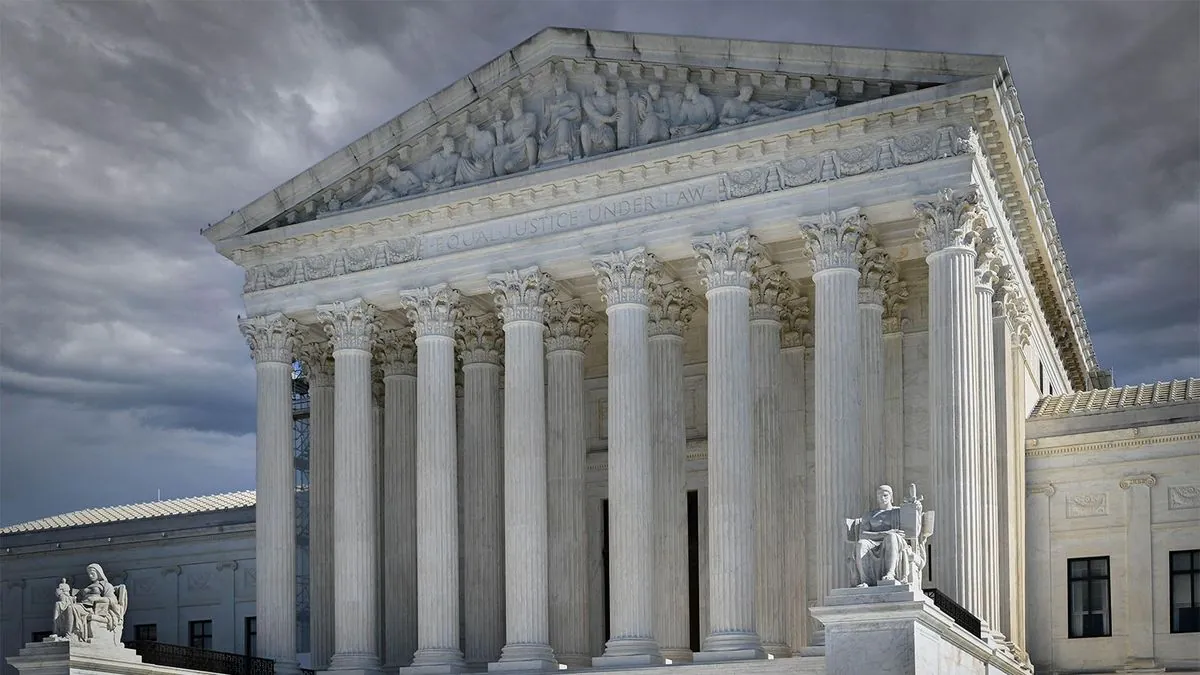Supreme Court to Hear Texas Death Row Inmate's DNA Testing Appeal
The U.S. Supreme Court agrees to review a Texas death row inmate's appeal for DNA testing. The case challenges state law limiting post-conviction genetic evidence analysis in capital punishment cases.

The U.S. Supreme Court has agreed to hear an appeal from Ruben Gutierrez, a Texas death row inmate seeking DNA testing of evidence from a 1998 crime scene. This decision, made on October 4, 2024, sets the stage for a significant case that could impact post-conviction rights and the use of genetic evidence in capital punishment challenges.
Gutierrez was convicted for his involvement in a robbery that resulted in the death of 85-year-old Escolastica Harrison. The incident, which occurred 26 years ago, involved Harrison being fatally stabbed with a screwdriver. Gutierrez maintains that he did not personally stab the victim or anticipate her death during the robbery.
The case highlights the ongoing debate surrounding DNA testing in criminal justice. Since its first use in a 1986 criminal case, DNA evidence has led to over 375 exonerations of wrongfully convicted individuals in the United States. The Innocence Project reports that these exonerations have significantly contributed to reforms in the criminal justice system.
Gutierrez's appeal challenges a Texas law that limits post-conviction DNA testing. Texas prosecutors argue that state law only permits such testing to prove innocence, not to contest a death sentence. They contend that even if DNA testing supported Gutierrez's claims, he would still be eligible for capital punishment under Texas law, which allows the death penalty in felony murder cases even when the defendant did not directly cause the death.

This case brings attention to the complexities of due process rights in capital cases. The due process clause, appearing in both the Fifth and Fourteenth Amendments to the U.S. Constitution, is central to Gutierrez's argument. He contends that the Texas law violates his constitutional right to due process by restricting access to potentially exculpatory evidence.
The Supreme Court's decision to hear this case is notable, considering it receives approximately 7,000-8,000 petitions each term but only hears oral arguments in about 80 cases. This selectivity underscores the potential significance of Gutierrez's appeal.
Texas has executed more prisoners than any other U.S. state since 1976, when the Supreme Court reinstated the death penalty after a four-year ban. As of 2024, 27 states still maintain capital punishment, though only 11 carried out executions in 2021. The average time between sentencing and execution in the U.S. is about 19 years, reflecting the complex legal processes involved in death penalty cases.
The cost implications of death penalty cases are substantial, with estimates suggesting they can be up to 10 times more expensive than non-death penalty cases. This financial burden, coupled with the fact that over 190 people have been exonerated from death row since 1973, adds weight to the ongoing debate about the efficacy and fairness of capital punishment.
As the Supreme Court prepares to hear this case in its new term beginning October 7, 2024, the outcome could have far-reaching implications for post-conviction DNA testing rights and death penalty challenges across the United States. The case also highlights the evolving role of scientific evidence in the criminal justice system, particularly as studies continue to reveal the potential inaccuracies of traditional forms of evidence, such as eyewitness testimony.


































